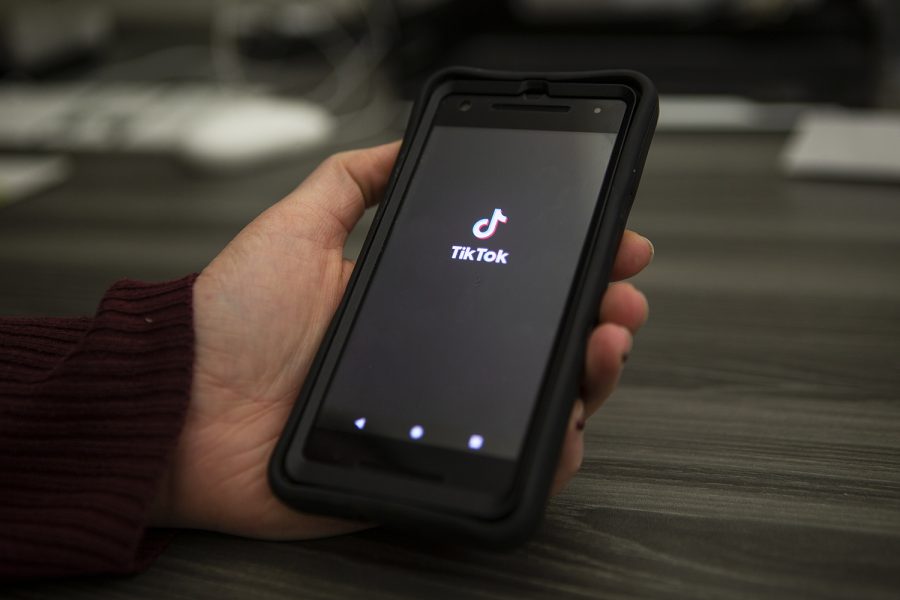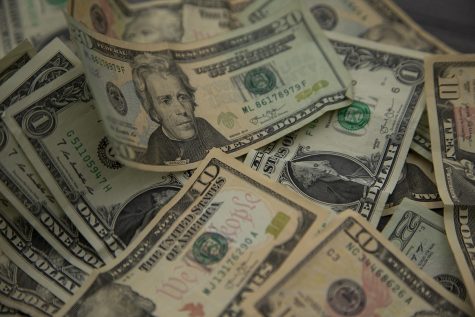Opinion | Turn off TikTok — for good
I deleted TikTok after three years. This is my verdict on the app.
Photo Illustration by Jenna Galligan
April 23, 2023
For years, I spent mindless hours scrolling TikTok.
In March, I deleted the app because I needed to refocus my time on other things. Initially, I thought this would be an impossible challenge. Now, I can say with certainty that I’m better off without the app.
Recent Congressional hearings raised alarms of concern for users across the country. Regardless of what Congress ultimately decides, we should all use this time as an opportunity to elevate the impact TikTok — and other social media platforms — has on our daily lives.
I first downloaded TikTok a month before the world went into lockdown in March 2020. Initially, my feed was full of other young people experiencing lockdown. This included videos of frothy whipped coffee, Megan Thee Stallion dances, and the infamous Tiger King.
During this lonely time, TikTok was one source that made me feel connected with the world. As time went on, the app didn’t fulfill this purpose anymore.
After a long day, there was nothing I wanted more than to go home and scroll on TikTok. The hours I spent on the app decimated my attention span. It got to the point where watching television or reading an entire article felt draining. Although the app is addicting, being on it felt unfulfilling.
My experience with TikTok is not unique.
Teenagers across the country are addicted to TikTok. A report by Pew Research Center found 67 percent of teenagers are on the app. Of that percentage, 17 percent reported using the app almost constantly.
Younger demographics are not the only culprits of excessive social media usage. Adults in the U.S. spend an average of 123 minutes per day on Facebook, TikTok, Instagram, and Twitter, according to Statistica.
Even with a platform of more than 150 million Americans, excessive time spent on TikTok can feel isolating. Watching friends and strangers broadcast their lives does not help one get a sense of their own. The addictiveness of TikTok can easily bring users into isolation and self-doubt.
The app also promotes negative mindsets in vulnerable populations. A report by the Center for Countering Hate found that the app was recommending content tied to eating disorders and self-harm to 13-year-old girls within 30 minutes of joining the platform. Depression in teens has almost doubled since the mass growth of social media, according to the Substance Abuse and Mental Services Administration.
Another looming concern for large social media platforms like TikTok includes the proliferation of altered content. The app is a hot spot for misleading edits, fake news stories, and deep fakes of public figures. Videos are all given the same airtime, meaning it can be difficult to distinguish what is real.
As much as I criticize TikTok, I do believe this app offers a great outlet for content creators. TikTok has allowed a platform— and even income — for artists, comedians, musicians, and chefs. This app caters to many communities like the one I found during the pandemic.
Social media has a positive contribution to society, and it’s here to stay. That’s why we should all reconsider how TikTok and social media apps alike impact our daily lives.
It’s too easy to suggest monitoring your time on TikTok and scrolling platforms. Unless you have amazing willpower, it would be best for your sake to delete these mind-consuming apps for good.
I was afraid deleting TikTok would make me miss out on new trends and gossip. But after deleting the app, I’ve come to realize that TikTok is not reality.
Columns reflect the opinions of the authors and are not necessarily those of the Editorial Board, The Daily Iowan, or other organizations in which the author may be involved.














